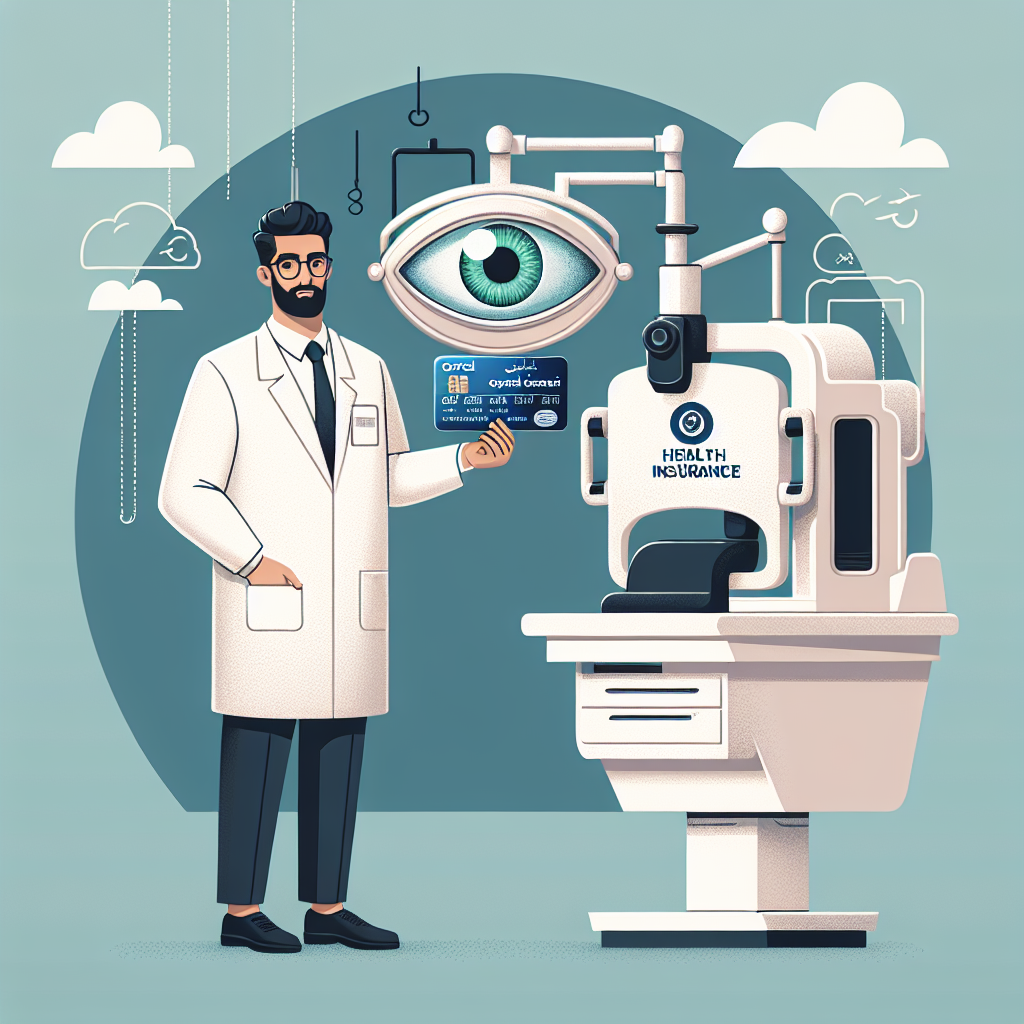Filed under Health Insurance on
"Does Health Insurance Cover Your Eye Exam?"

Health insurance is a crucial component of managing your well-being, yet many people still ponder, "Does health insurance cover your eye exam?" Eye health is an essential aspect of overall health, and understanding your insurance's coverage can help you make informed decisions about your eye care needs. This article delves into the intricacies of health insurance and eye exams, unraveling what is typically covered and what isn't, helping you navigate your benefits with confidence.
Understanding Health Insurance for Eye Exams
Eye exams are a fundamental part of maintaining ocular health, catching early signs of potential issues, and ensuring optimal vision. However, determining whether your health insurance covers these exams can be complex, given the variety of plans and providers. Typically, there's a distinction between medical insurance and vision plans. Each has its own set of benefits and coverage limitations.
Medical Insurance vs. Vision Insurance
Medical insurance generally covers the diagnosis and treatment of health-related eye conditions, such as infections or diseases. However, standard eye exams for vision correction may not be covered. On the other hand, a vision insurance plan often includes comprehensive eye exams, prescription lenses, and frames. Understanding the nature of your insurance is critical in determining what aspects of eye exams are financially covered.
Types of Eye Exams Covered
When asking, "Does health insurance cover your eye exam?", it's essential to differentiate between routine and medical eye exams:
- Routine Eye Exams: These exams are generally for maintaining vision health, checking for refractive errors, and updating prescriptions for glasses or contact lenses.
- Medical Eye Exams: These exams assess eye health related to medical conditions such as glaucoma, macular degeneration, or diabetic retinopathy.
The coverage for these exams varies significantly based on your insurance policy. Health insurance often covers medical eye exams, whereas vision plans are more likely to cover routine check-ups.
Factors Influencing Coverage
Several factors influence whether your specific health insurance plan covers eye exams. Below are some key considerations:
Your Insurance Provider
Different insurance companies have varying policies on what components of an eye exam are covered. Some providers might cover a yearly comprehensive eye exam under a specialized vision plan, while others may offer limited benefits only for medical-related exams.
Plan Type and Level
The type and level of your health insurance plan significantly impact coverage. Higher-tier plans might provide broader coverage for eye care services, including both routine and medical exams.
Age and Health Status
Your age and overall health can also dictate what is covered. For example, pediatric vision care is often more comprehensively covered, promoting early detection of issues developing in childhood.
Current Industry Trends in Eye Exam Coverage
Recent trends in the insurance industry show an increased integration between health and vision insurance. Some providers now offer hybrid plans which aim to consolidate these benefits for a more streamlined approach to coverage.
- Increased focus on preventive care has led to more insurance plans covering annual comprehensive eye exams.
- Telemedicine and virtual consultations have emerged in popularity, potentially influencing how eye exams are conducted and covered.
- Consumer demand for digital access to benefits and claims management increases transparency, allowing policyholders to better understand their eye care benefits.
Expert Opinions on Eye Care and Insurance
Healthcare professionals emphasize the importance of regular eye exams. Dr. Lisa Murphy, an optometrist, notes, "Routine eye exams are crucial not only for maintaining vision but also for detecting systemic health issues, like diabetes and hypertension, which can manifest with eye-related symptoms."
Insurance experts advise reviewing policy details to understand what your plan covers. Sarah Thompson, a health insurance consultant, advises, "Proactively engaging with insurance providers to comprehend your policy specifics can prevent unexpected out-of-pocket expenses for eye care."
Tips for Navigating Your Insurance Plan
Successfully utilizing your insurance benefits begins with a thorough understanding and strategic approach:
- Review Your Policy: Examine your insurance policy to clarify what eye exam services are covered.
- Contact Your Insurance Provider: Reaching out directly to your provider can help verify coverage details and confirm any co-pays or deductibles.
- Check for Partnerships: Some insurance companies partner with specific optometrists or eye care centers, offering additional benefits or discounts.
- Stay Informed: Keep abreast of any changes to your insurance plan by receiving updates through newsletters or direct communication from your insurer.
Conclusion
Deciphering whether your health insurance covers your eye exam requires a clear understanding of your specific plan and its benefits. By distinguishing between medical and vision insurance, assessing policy factors, and staying informed on industry trends, you can effectively manage your eye health while optimizing your insurance coverage. Remember, regular eye exams are an essential aspect of proactive health care, ensuring you maintain not just your vision, but your overall well-being.





